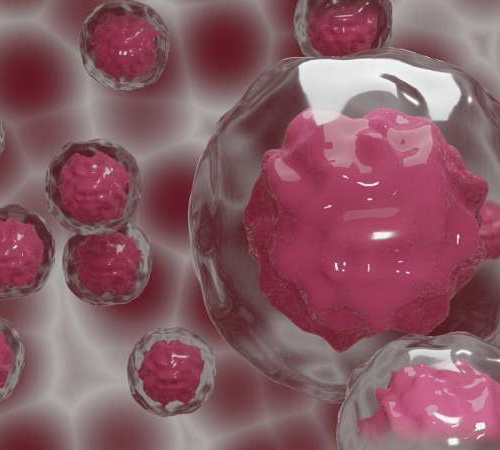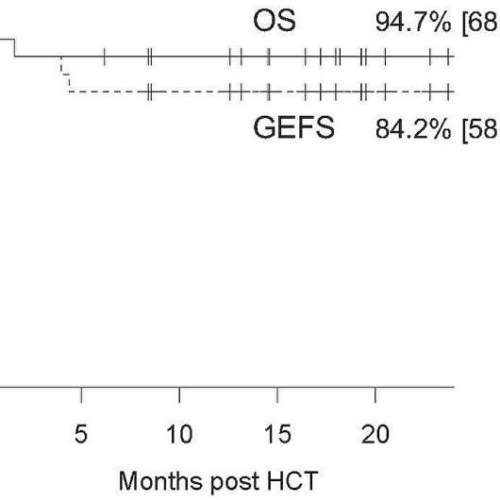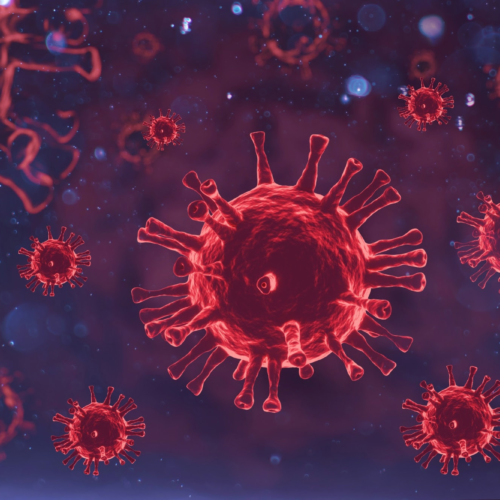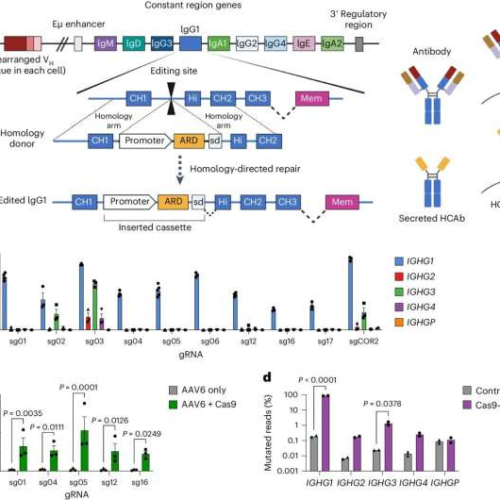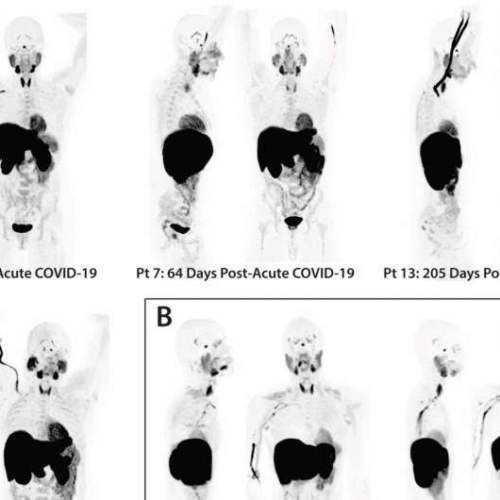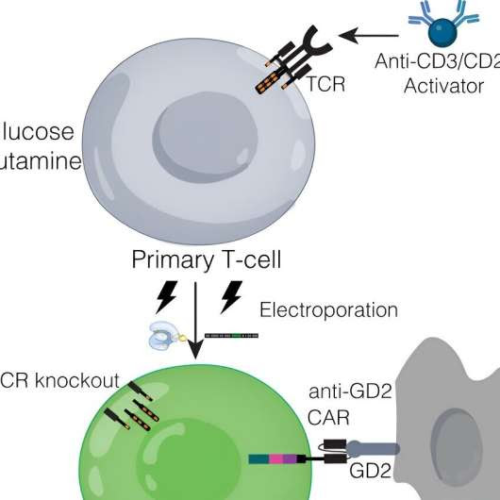July 26, 2024 by H. Lee Moffitt Cancer Center & Research Institute Credit: Pixabay/CC0 Public DomainMerkel cell carcinoma is a rare but highly aggressive form of skin cancer known for its rapid growth and tendency to metastasize. Despite the promise of immune checkpoint blockade therapy, which can boost the body’s immune response against cancer cells,...
Category: <span>Immunology</span>
Investigating the effect of alemtuzumab in allogeneic hematopoietic cell transplantation
July 26, 2024 by Tokyo Medical and Dental University The OS and GEFS of the study cohort. The solid line and the dashed line show OS and GEFS curves, respectively. OS and GEFS at 2 years post-HCT are described with 95% confidence intervals in brackets. Grade III–IV acute GVHD, systemically treated chronic GVHD, second transplantation,...
Electrical currents may make body’s cancer-killing cells even better killers
NEWS RELEASE 25-JUL-2024 Peer-Reviewed PublicationTRINITY COLLEGE DUBLIN Scientists have discovered that electrical currents may make Natural Killer (NK) cells – our very own cancer-killing immune cells – even better killers, which could have significant implications for treating some cancers. The scientists found that Tumour Treating Fields (TTF) in the laboratory (which mimic exposure of brain...
Clinical trial: Fecal matter transplant helps half of patients with GI cancers overcome immunotherapy resistance
JULY 25, 2024 by Cell Press Credit: CC0 Public DomainFindings from a small, proof-of-concept clinical trial have suggested that fecal microbiota transplants (FMTs) can boost the effectiveness of immunotherapy in a range of gastrointestinal cancers. In the study, published July 25 in the journal Cell Host & Microbe, six of 13 patients who had previously...
Brain-heart axis: strokes change epigenetics of immune system
NEWS RELEASE 23-JUL-2024 Heart condition because of stroke? A new LMU study discovers why this can happen – and how we can counter it in future Peer-Reviewed PublicationLUDWIG-MAXIMILIANS-UNIVERSITÄT MÜNCHEN A stroke not only causes acute damage to the brain, but can also have long-term health implications for other organs – such as the heart. “However,...
Long-term immune changes persist in unvaccinated COVID-19 patients
By Dr. Chinta SidharthanReviewed by Susha Cheriyedath, M.Sc. In a recent study published in the journal Allergy, a team of researchers in Austria conducted a longitudinal analysis among individuals who had not been vaccinated against coronavirus disease 2019 (COVID-19) to understand the changes in humoral and cellular immunity over ten months after the first severe...
Researchers turn the body’s B cells into tiny surveillance machines, antibody factories
JULY 22, 2024 by Leigh Hopper, University of Southern California Genome editing at the constant region of the IgH locus. a, Antibody H chains are encoded by a rearranged variable domain (VH) spliced to a constant region that can be altered by class switch recombination. b, K562 cells were edited with Cas9 RNPs programmed by...
Long COVID uncharacteristic immune cell activity and SARS-CoV-2 RNA found in the gut two years after infection
JULY 8, 2024 by Bob Yirka , Medical Xpress SARS-CoV-2 spike protein-encoding RNA (green) identified in rectosigmoid tissue of an individual with Long COVID 676 days after COVID-19 infection with no known or suspected reinfection. Credit: Henrich Laboratory, UCSF Division of Experimental MedicineA large team of medical researchers at the University of California, San Francisco,...
First-trimester COVID-19 vaccine does not increase risk for birth defects
by Lori Solomon First-trimester mRNA COVID-19 vaccine exposure is not associated with an increased risk for selected major structural birth defects, according to a study published online July 1 in JAMA Pediatrics. Elyse O. Kharbanda, M.D., M.P.H., from HealthPartners Institute in Minneapolis, and colleagues assessed whether receipt of an mRNA COVID-19 vaccine during the first...
Serendipity reveals new method to fight cancer with T cells
JULY 2, 2024 by Laura Red Eagle, University of Wisconsin-Madison Graphical abstract. Credit: Molecular Therapy – Methods & Clinical Development (2024). DOI: 10.1016/j.omtm.2024.101249A promising therapy that treats blood cancers by harnessing the power of the immune system to target and destroy cancer cells could now treat solid tumors more efficiently. Thanks to a recent study...

